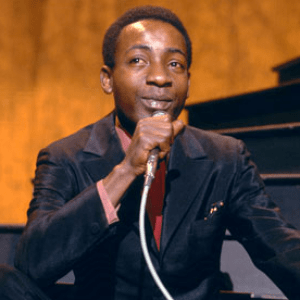 August 3, 2010 – Robert Von Bobby Hebb was born on July 26, 1938 in Nshville, Tennessee.
August 3, 2010 – Robert Von Bobby Hebb was born on July 26, 1938 in Nshville, Tennessee.
His parents were both blind musicians. Hebb and older brother Harold performed as a song-and-dance team in Nashville beginning when Bobby was three and Harold was nine.
Hebb performed on a TV show hosted by country music record producer Owen Bradley, which earned him a place with Grand Ole Opry star Roy Acuff. Hebb played Spoons and other instruments in Acuff’s band. Harold later became a member of Johnny Bragg and the Marigolds. Bobby Hebb sang backup on Bo Diddley’s “Diddley Daddy”. Hebb played “West-coast-style” trumpet in a United States Navy jazz band, and replaced Mickey Baker in Mickey and Sylvia.
In 1960 he reached the New York Top 50 with a remake of Roy Acuff’s “Night Train To Memphis”.
On November 23, 1963, the day after John F. Kennedy’s assassination, Bobby Hebb’s brother, Harold, was killed in a knife fight outside a Nashville nightclub. Hebb was devastated by both events and sought comfort in songwriting. Though many claim that the song he wrote after both tragedies was the optimistic “Sunny”, Hebb himself stated otherwise. He immersed himself in the Gerald Wilson album, You Better Believe It!, for comfort.
“All my intentions were just to think of happier times – basically looking for a brighter day – because times were at a low tide. After I wrote it, I thought “Sunny” just might be a different approach to what Johnny Bragg was talking about in “Just Walkin’ in the Rain”.
“Sunny” was recorded in New York City after demos were made with the record producer Jerry Ross. Released as a single in 1966, “Sunny” reached No. 3 on the R&B charts, No. 2 on the Billboard Hot 100, and No. 12 in the United Kingdom. When Hebb toured with The Beatles in 1966 his “Sunny” was, at the time of the tour, ranked higher than any Beatles song then on the Billboard Hot 100 chart.[citation needed] BMI rated “Sunny” number 25 in its “Top 100 songs of the century”.
In 1966 Bobby after recording “Sunny”, he toured with The Beatles.
BMI rates “Sunny” number 25 in its Top 100 songs of the century, it sold over one million copies, and was awarded a gold disc. It is also one of the most covered popular songs, with hundreds of versions released, by the likes of Cher, Boney M, Georgie Fame, Johnny Rivers, Stevie Wonder, Frank Sinatra with Duke Ellington, Ella Fitzgerald, The Four Seasons, the Four Tops, James Brown, Wilson Pickett, and Dusty Springfield.
Hebb also had lesser hits with his “A Satisfied Mind” in 1966 (No. 39 on the Billboard chart and No. 40 on the R&B chart) and “Love Me” in 1967 and wrote many other songs, including Lou Rawls’ 1971 hit “A Natural Man” (co-written with comedian Sandy Baron). Six years prior to “Sunny”, Hebb reached the New York City Top 50 with a remake of Roy Acuff’s “Night Train to Memphis”. In 1972, his single “Love Love Love” reached No. 32 on the UK charts.
In 1976, Hebb released a newly recorded disco version entitled “Sunny ’76”. The single was a minor hit reaching No. 94 on the R&B chart.
After a recording gap of thirty five years he recorded a new album; That’s All I Wanna Know was his first commercial release since Love Games in 1970. It was released in Europe in late 2005 by Tuition, a new pop indie label. New versions of “Sunny” were also issued two duets: one with Astrid North, and one with Pat Appleton. In October 2008 Bobby toured and played in Osaka and Tokyo in Japan.
On August 3, 2010 Bobby lost his battle with lung cancer at the age of 72.
Ipanema Films of Germany was involved in a biographical film which included Hebb, his biographer Joseph Tortelli, and Billy Cox.







